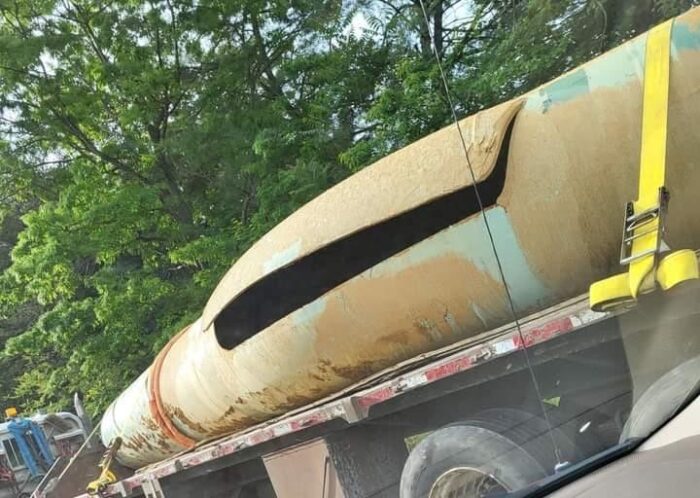The builder of the Mountain Valley Pipeline has said it notified federal regulators when a section of the pipe ruptured last month during a pressure test.
However, a Freedom of Information Act request by West Virginia Public Broadcasting to the Federal Energy Regulatory Commission revealed no correspondence between the pipeline builder, Equitrans Midstream, and the FERC Office of Energy Projects in the 10 days after the May 1 incident.
The Office of Energy Projects is tasked with approval of the pipeline to begin moving as much as 2 billion cubic feet of natural gas a day from north central West Virginia to southern Virginia. Among its other responsibilities: “safeguarding the public.”
The Pipeline Safety Trust, an independent watchdog group, encouraged FERC last month to closely examine the failed water pressure test at Bent Mountain, Virginia.
It remains unclear when and how FERC was notified of the ruptured pipe.
“We are aware of the situation,” wrote Celeste Miller, a FERC spokeswoman, in an email.
Natalie Cox, a spokeswoman for the pipeline’s builder, pointed to two documents in the FERC public docket: a construction status report posted on May 13 and an environmental compliance report posted on May 17.
Neither document conveys a sense of urgency about the incident.
The construction status report says on page 12 that an “inadvertent hydrotest discharge caused turbid water to enter several resources.”
On page 5 of the environmental compliance report, the entry says “the Compliance Monitor was notified that an applicant problem area report was written for sediment deposits beyond the limits of disturbance and into a sensitive resource at MP 246.1 due to a release of hydrostatic test water.”
Neither says the pipeline burst.
The incident was first made public because a landowner in Bent Mountain reported sediment-laden water on her property to the Virginia Department of Environmental Quality, which sent an investigator and entered a report into an online incident database.
Another landowner in Bent Mountain tracked down and photographed the damaged section of pipe, which was transported away from the site on a flatbed truck.
In a letter to FERC dated May 10, Todd Normane, Equitrans Midstream senior vice president, and legal counsel for the Mountain Valley Pipeline, wrote that the pressure test failure warranted no safety concerns and demonstrated that the testing was working as intended.
“To reiterate, hydrostatic testing is a proof test to ensure all pipeline components will safely operate at the (maximum allowable operating pressure) prior to introducing gas into the pipeline,” he wrote.
The 303-mile pipeline has been under construction since 2018, and legal challenges brought work to a halt on multiple occasions. The projected cost of the project is approaching $8 billion, more than twice the original estimate.
The pipeline got fast-tracked to completion last summer with the passage of the Fiscal Responsibility Act, a spending deal that required the approval of all remaining permits for construction. Sen. Joe Manchin of West Virginia, a Democrat turned independent, inserted the language into the bill over the objection of Virginia’s senators.
Landowners, environmental organizations, a group of Virginia state lawmakers and three county commissions have written to FERC urging it to deny the pipeline approval to enter service.
























